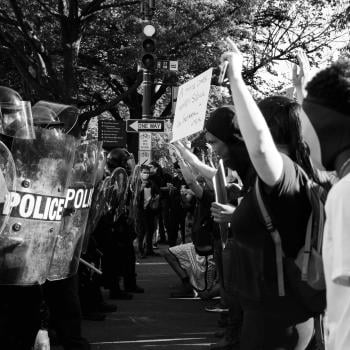
Listen to the audio version of this article below:
Psychological Complex Explained
Psychological complexes are clusters of past experiences that provide structure to our understanding and experience of reality. (Ruth Snowden). Complexes enable us to navigate our world by grouping similar experiences together into patterns. Negative complexes specifically are often rooted in trauma, and can hold incredible power over how we order our lives and respond to others. When we are “triggered” our inner library of past experiences activates (or constellates) and prepares us to respond as though we are experiencing the trauma again. We can be assured a negative complex has been triggered any time our reaction to a situation is disproportionate to the situation at hand (Read Jung’s Map of the Soul by Murray Stein to explore complexes more thoroughly).
Basically, a negative complex functions psychologically to defend you from harm. Unfortunately, it will also defend you from life, joy, growth, and being generally open to new experiences.
Possessed by Division
The story of the demoniac (visit the link to familiarize yourself with the story) in the Christian gospels provides an image of a negative complex. The word demon (dai-mon) literally means “divider,” and comes from the root da meaning “to divide.” We can think of a negative complex as a divided or split off part. The name Legion (the demons name) implies a military regiment. The man in the story is literally possessed by a militarized group of divisions. I cannot think of a more fitting image for a negative complex!
The more unaware we are of a negative complex, the more control it has over our lives, and the more energy it requires to keep in check. Such a complex could be said to live on the outskirts of the “city,” among the tombs, bound by chains, and constantly threatening to escape. It puts our conscious self (represented by the city of Jericho in the story) in a constant and chronic state of fear, unease, and reactivity.
Befriending a Complex
We must learn to engage and relate to our complexes. In the story, Christ, a symbol of the Self (wholeness) approaches the “divided” individual with a question: What is your name?
- The first step in relating to a complex is knowing its name–naming the complex allows you to interact and imaginatively dialogue with it.
- Second, identify the stories, emotions, and memories related to the complex. Who are the people and narratives from your past that come to mind? The demon responds to Jesus saying he is “Legion, for we are many.” Complexes are complex. They are like a ball or hair, or like a spider’s web. They rarely have a single origin. Befriending a complex is less like befriending an individual, and more like befriending an entire community with all its systems, politics, streets, and backroads! It takes time, and there are layers and levels of understanding.
- Third, where in your body do you carry this complex? An activated complex will have direct impacts on your body through either heightened pain, sensation, or numbness. The work here is to check-in with your body when a complex constellates. Locate the emotion, ask it questions, and invite it to speak.
Triaging a Complex
When you feel possessed by a complex, don’t cast it away, and try to keep it from hurting others. If you’ve grown up in evangelical Christianity, you likely are well practices at pushing a complex away because the emotions and thoughts feel so transgressive. Try to avoid the knee-jerk response of pushing the complex away. The best advice for dealing with a complex comes Jungian psychoanalyst, Joseph Lee and the podcast This Jungian Life. When finding yourself possessed by a complex, Joseph says, “Shut your mouth, and sit on your hands.”
If we take action while a complex is constellated, we will likely do more harm than good. Responding while “possessed” can actually embed the complex deeper under a thick layer of shame. Instead, sit on your hands by checking in with a trusted friend, therapist, or move toward different energy by exercises, or beating the shit out of a pillow (the latter is really good if the complex constitutes rage) Once the heightened emotional response subsides, then you can begin moving toward action.
Complexes Drain Energy
Negative complexes soak up energy, especially when they live among the tombs and shadows of our inner world. The more we fight a complex, the more it fights us. The more we push it to the outskirts of consciousness, or approach it as a sort of unclean spirit, the more energy it consumes in our lives.
Complexes by definition are unconscious, but we can grow in awareness of them. However, the more unaware we are of negative complexes, the more energy we spend keeping them in the dark. Energy that could be available for intimate relationships, creative output, and life enjoyment is syphoned off in service of defending and asserting control over a negative complex. We can end up living in reaction to our complexes, rather than allowing our soul to animate us.
Healing a Complex
Our story ends with the formerly possessed individual “sitting, dressed and in their right mind.”[4] Do you long for this experience? Do you wish you could live from a place of wholeness, rather than in perpetual reaction to a negative complex? Perhaps you hope for the Divine to pass by and cast it out, but projections, scapegoating, even exorcisms only soothe for a moment. Eventually the divisions come back. The way forward is relationship and integration.
All complexes exist for a very good reason, and negative complexes protected and shielded us from further harm. Unfortunately, they also keep us from life. The good news is we don’t have to live divided. Our divisions can mend, and our tangled inner parts can find rest and clarity. The energy negative complexes drain, can become available again. Yet we need spaces to encounter and relate to these hidden parts, and we can’t do it alone.
Want to Engage Further?
- 1:1 Shadow Work: Do you want to explore and do some integrative work around a negative complex? Dr. Simmons offers 1 on 1 shadow work facilitation for this work. The cost is $50/1 hour session. You can email him directly at [email protected] for more information.
- Upcoming Courses: Two learning opportunities are coming up.
-
– Friday January 19th | 9am-11am PST | $25
-
– Fridays, January 26th through February 16th | 9am-11am PST | $170
-













